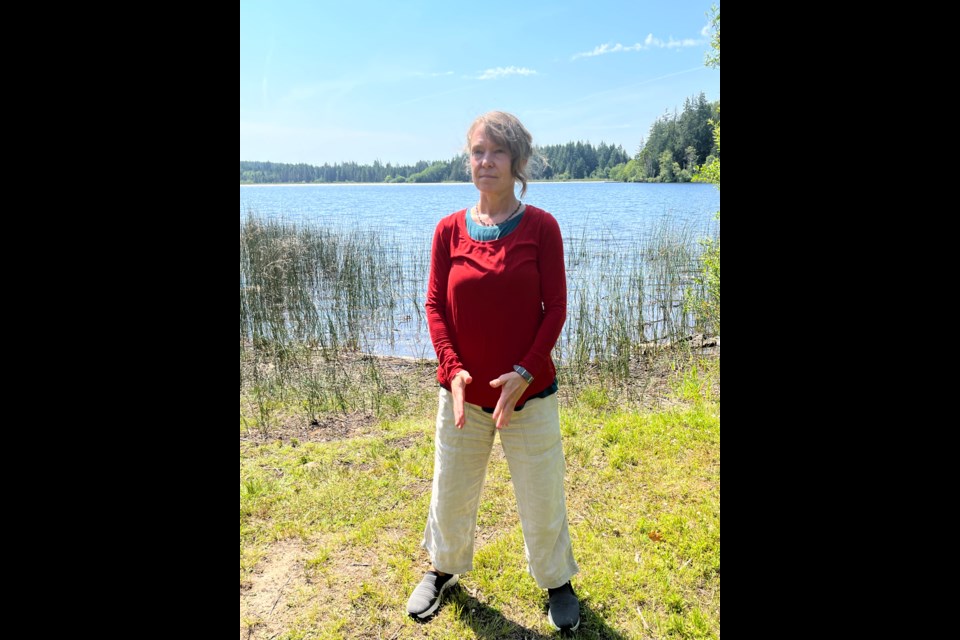For those who decide to meet outdoors in a park each week to practice qigong (pronounced: chee-koong) with teacher Sandra Tonn, their reasons for doing so vary. However, Tonn and her new and seasoned qathet students all say one thing in common; that “it [qigong] changed their life.”
According to Tonn’s website describing the practice: “qigong is ancient Chinese science, with a history of 5,000 years or more; it is an extremely valuable practice for the modern person, working with posture, movement, breath and focused intention.”
In the 1990s, qigong gained worldwide recognition as many masters from Hong Kong and mainland China relocated to the US and Canada, a majority to the west coast, and began teaching and passing on their skills to others.
Another commonly heard statement from her students is “an immediate shift,” and “the more you practice the better it gets.”
“I have been teaching over six years; we practice six months outside and six months inside at the Cranberry Hall,” said Tonn.
Formally trained and certified in qigong and also a graduate of the Canadian Acupressure College, Tonn says her own health crisis led her to study and practice qigong seriously.
“I started doing qigong every day; the practice calmed everything down in the limbic system,” said Tonn. “I’m always learning and I have many teachers.”
In the current summer session the group is focused on the heart. Each season looks at a different body organ and one of the five elements: fire, water, wood, earth and metal. The heart, according to Tonn, is connected to the fire element.
“Simply put, that spark of fire in the heart is what’s called ‘shen’ and it is our true inner nature,” said Tonn. “We can think of our pathways of energy like water; if it’s not flowing, it’s blocked and creates imbalance.”
The translation is for “chi” is breath and “gong” is to cultivate or practice.
“You don’t need any experience, and it’s very accessible, no special clothes or fitness level; I have students from all walks of life,” said Tonn. “When we get together as a community, we work on three components: mind, breath and action; we are working with ourselves together.”
She believes a simple reason why people join her class is because it feels good and is incredibly transforming on all levels.
“The practice focuses on organs, bones, muscles, connective tissue, body systems and emotions; nothing is left out,” said Tonn.
For those who may be skeptical, Tonn also brings science into her teaching for “the people who don’t want to think they are doing something ‘airy-fairy.’”
She draws a lot of her knowledge from the HeartMath Institute, a nonprofit that focuses on heart research.
Modern science does point to the importance of circulation and blood flow to all the organs, including the heart and the brain, for healthy aging.
One analogy for circulation in qigong is water and Tonn likes the quote from the ancient Chinese philosopher Lao Zu: “Be like water, my friends.”
“When there is more energy flowing, there is more blood flowing, there is more nutrition and more oxygen,” said Tonn.
Students said they like it because there is no dogma, it’s straight to the point, supportive and it makes the rest of the day feel lighter.
According to Tonn: “Qigong is simple, relaxing and peaceful, and at times very light and fun, but also extremely powerful; through posture, movement, breath and intention, qigong cultivates physical, mental and spiritual health so you can live your best life. For more information, go to qisandra.ca/aboutclasses



